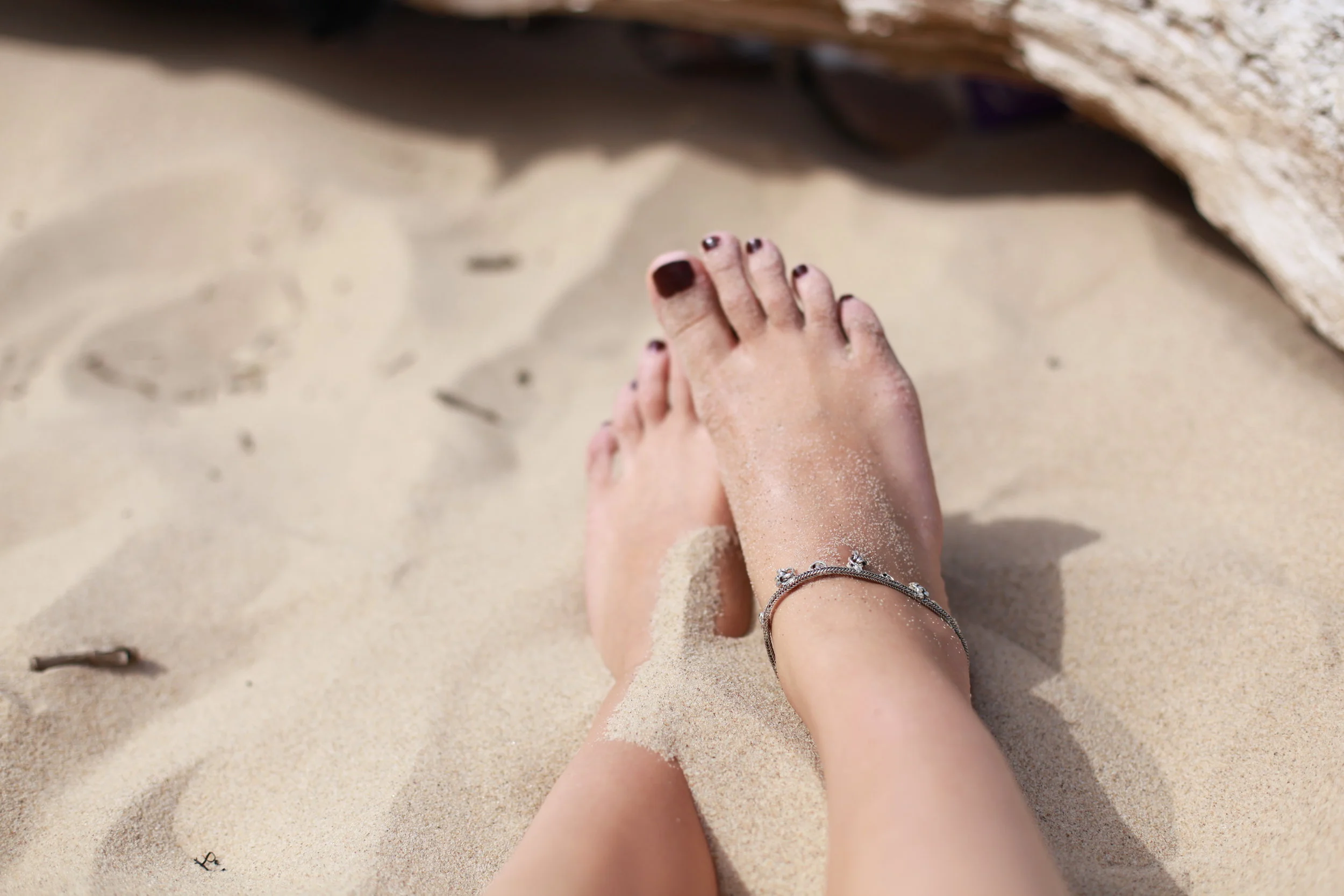Body Positive Influencers
People are shamed everyday for their weight and the way they look, and that is not right at all. Influencers all over the world have decided this stigma against plus-size creators should be put to a stop immediately. As the number of body positive creators rose, the better the social media environment gets.
Social media has always tried to fit people into a “box”. To get famous, you need to be “skinny” and have a perfect life. This idea has brought down the confidence of men and women for a long time. People are shamed everyday for their weight and the way they look, and that is not right at all. Influencers all over the world have decided this stigma against plus-size creators should be put to a stop immediately. As the number of body positive creators rose, the better the social media environment has gotten. In today’s blog, I have listed ten body positive creators on the social media platform Instagram that you should check out and follow!
#1 Mik Zazon (@mikzazon)
Mik Zazon is a 26 year old instagram influencer who has 1 million followers. She posts multiple times a week, and focuses on normalizing insecurities in women today.
#2 Michelle Elman (@michellelelman)
Elman is a 29 year old life coach, author, and influencer who has 245 thousand followers. She talks about many mental health topics and stigmas on her page.
#3 Anna Sweeney (@dietitiananna)
Anna is an eating counselor with 130 thousand followers. On her page, she posts about having healthy eating habits and exposing the harm of eating disorders.
#4 Neha Parulkar (@nehaparulkar)
Neha is a plus-size model and body positive influencer with 50 thousand followers. She posts about what it’s like to be a plus-size ethnic woman in today’s society.
#5 Kadeeja Sel Khan (@emeraldxbeauty)
Khan is an acne model and skin activist with 383 thousand followers. She is trying to normalize having acne and stop people from feeling ashamed of it.
#6 Claus Fleissner (@extra_inches_plussizeblog)
Fleissner is a plus-size model with 20 thousand followers. He uses his page to promote more plus-size representation in the fashion industry.
#7 Riccardo Onorato (@guyoverboard)
Onorato is a body-positive influencer with 81.7 thousand followers. He uses his page to show how men are pressured to conform to society’s beauty standards, and how he got through those pressures himself.
#8 Ryan Sheldon (@realryansheldon)
Sheldon is an influencer with 20.6 thousand followers. He talks about how he struggles with an eating disorder on his page, and also how he overcame it.
#9 Zach Miko (@zackmiko)
Miko was Target’s first plus-size model ever, and caused people to start talking about body inclusivity more because of his achievements.
#10 Kelvin Davis (@kelvindavis)
Davis is a body-positive influencer and model with 124 thousand followers. His page promotes self-love and acceptance of yourself and your body.
Resources :
Taylor Andrews (2021, March 3). Follow these 15 body positive activists for all the ~good Vibes~. Cosmopolitan. Retrieved October 6, 2022, from https://www.cosmopolitan.com/health-fitness/g13352390/body-positivity-instagram-accounts/
Wheeler, K. (2020, July 10). 11 male body confidence bloggers you need to follow now. Happiful Magazine. Retrieved October 6, 2022, from https://happiful.com/male-body-confidence-bloggers-to-follow/
Kylee Roberts, Mental Health Virtual Assistant
Co-Written by Amber Madden, LPCC-S
#WakeUpWeightWatchers (My WW Story)
A few weeks ago, Weight Watchers announced the company would be offering free signups for adolescents this summer. In a press release the company voiced, "Weight Watchers intends to be a powerful partner for families in establishing healthy habits. During the summer of 2018, Weight Watchers will offer free memberships to teenagers aged 13 to 17, helping the development of healthy habits at a critical life stage." The same release also revealed the company stands to increase revenue by more than $2 billion by new member growth and retention.
A few weeks ago, Weight Watchers announced the company would be offering free signups for adolescents this summer. In a press release the company voiced, "Weight Watchers intends to be a powerful partner for families in establishing healthy habits. During the summer of 2018, Weight Watchers will offer free memberships to teenagers aged 13 to 17, helping the development of healthy habits at a critical life stage." The same release also revealed the company stands to increase revenue by more than $2 billion by new member growth and retention.
This is both disturbing and problematic the company would take such a bold move to "hook" an audience and following at such a young and vulnerable age. With much of society targeting children and adolescents with alarming (and skewed) statistics citing that today's generation will be the first to not outlive their parents due to obesity, the company seems to be taking advantage of a "global problem."
There is much that could be said on this subject and I'm sure there are numerous articles and information you can read which will share all of the data and research as to why this is such a bad idea. Instead of sharing that information again, I thought I could lend to speak to you from experience.
When I was 12 years old, Weight Watchers was my first introduction into the diet world. At this young and vulnerable time, I don't even remember being "overweight," or what society may have deemed as overweight for an adolescent. What I do remember is attending the meetings with my Mom and thinking that it looked like fun. I was intrigued by the community the women had and the idea of a weekly weigh-in where I would be showered with positive attention (if I lost weight) sounded like something I wanted to be a part of, too. Joining Weight Watchers felt like a rite of passage because all women who are grown-ups are on some sort of a diet - or at least that's what I believed.
Obviously I was young, at the age of 12, but I thought I would share here my memories that stand out the most for me from my experience of being a participant of Weight Watchers as an adolescent. My hope is that if you are a parent considering this for your child, that you will reconsider.
What Weight Watchers Taught Me:
- That losing weight was positively rewarded and reinforced, while gaining weight was something to be ashamed of. Many women would even have meltdowns and end up crying after a "bad weigh-in" at the back of the room.
- Lunchtime at school became very complicated and uncomfortable while on WW. During my time at WW, tuna fish sandwiches and carrot sticks were all the rage. So, while all the other children at school were enjoying their lunches with fun snacks and well-rounded meals, I was eating tuna fish and crackers. I remember it feeling very isolating.
- Weight gain was something to be ashamed of. I can remember our WW counselor once posing the question, "What good things come from weight gain?" It was as if implying that only bad things come from weight gain, when really, this shouldn't even be part of the conversation we're having because a specific weight is not the only indicator of better health.
- My Binge Eating began while I was a member of WW. It was almost a known fact that all the women would congregate after the meetings and have a "cheat meal" out together somewhere after the meeting. I can remember eating so much that afterwards I always felt sick and miserable.
These are specific memories I have, but there are many other take-aways for how being an adolescent in WW would have a negative impact on my life for years to come. The program would be my first experience in positive reinforcement for weight loss, thus solidifying in my young mind the falsehood that a thinner body is a better body. Weight Watchers would be the first of many diets that I would try for the next two decades. Like many other individuals who are susceptible to an eating disorder after dieting, Weight Watchers would become my gateway onto this path where I would later struggle with anorexia, binge eating and exercise bulimia.
Considerations Before Enrolling Your Teen
Meeting Are Not Led By Professionals - Perhaps one of the most notable faults of Weight Watchers in considering the program for your teenage child is the program lacks medical or mental health professional guidance. Most community meetings are hosted by a "leader." The Weight Watcher leaders (at least during that time) were untrained professionals who usually were "graduates" of the program having reached their goal weight. As such, they have practically no training as a medical or mental health professional.
Diets Are Not Conducive for Development - Another criticism is the fact that due to this lack of professional guidance, the program would most likely lack the information and knowledge needed to be able to provide adequate care for a developing adolescent body. In present day media, we see numbers and bold, fear-mongering statements indicating that the vast majority of Americans are overweight and are just on the cusp of death! Other statements also tend to claim that childhood obesity is at it's highest ever recorded. However, there is very little said about how many young children and adolescents will actually gain weight during puberty. This is NATURAL and supposed to happen. I'm sure at some point, you've probably heard the statement that children, "grow out, then up." Placing adolescents on a diet could deprive their growing body of the needed nutrients and resources to aid their bodies in the maturation process. This could have a significant impact on brain development, psychological functioning, as well as cause lack of energy.
What Message Do We Want To Send Our Youth? - Lastly, another consideration - do we want the conversation with our youth about better health to be based on their appearance? If as a parent, the concern is of your child's health, are there other areas you can provide improvement without labeling them as a WW member? Are there sports clubs or groups they can become involved in which may also lend to healthy discussion about their changing body? For example, Girls On the Run is a national organization which teaches young girls about their body and has mission to encourage confidence, self-respect and empowerment. There may be other ways to help your adolescent rather than a central focus on their weight and appearance, which could only further solidify a negative relationship with their body.
As stated previously, it is my hope that this discussion will give you pause and consideration before you decide to sign your teen up for Weight Watchers. Perhaps instead of Weight Watchers, you might consider an intuitive eating or Health At Every Size therapist for your teen's weight concerns. I would be more than happy to answer any questions or concerns you may have!
Join Us!
Each season we read a new selection of a Intuitive Eating or HAES related book.
Free Membership Available!
Bloom Book Club: Body Respect
It's that time! The Bloom Book Club members have voted and our next quarter's read has been selected!
We'll be reading Body Respect: What Conventional Health Books Get Wrong, Leave Out, and Just Plain to Fail to Understand about Weight by Linda Bacon, Ph. D. and Lucy Aphramor, Ph. D.
It's that time! The Bloom Book Club members have voted and our next quarter's read has been selected!
We'll be reading Body Respect: What Conventional Health Books Get Wrong, Leave Out, and Just Plain to Fail to Understand about Weight by Linda Bacon, Ph. D. and Lucy Aphramor, Ph. D.
Begins April 15th! (but feel free to join in anytime)
The excerpt about the book from Amazon:
Weight loss is not the key to health, diet and exercise are not effective weight-loss strategies and fatness is not a death sentence.
You’ve heard it before: there’s a global health crisis, and, unless we make some changes, we’re in trouble. That much is true—but the epidemic is NOT obesity. The real crisis lies in the toxic stigma placed on certain bodies and the impact of living with inequality—not the numbers on a scale. In a mad dash to shrink our bodies, many of us get so caught up in searching for the perfect diet, exercise program, or surgical technique that we lose sight of our original goal: improved health and well-being. Popular methods for weight loss don’t get us there and lead many people to feel like failures when they can’t match unattainable body standards. It’s time for a cease-fire in the war against obesity.
Dr. Linda Bacon and Dr. Lucy Aphramor’s Body Respect debunks common myths about weight, including the misconceptions that BMI can accurately measure health, that fatness necessarily leads to disease, and that dieting will improve health. They also help make sense of how poverty and oppression—such as racism, homophobia, and classism—affect life opportunity, self-worth, and even influence metabolism.
Body insecurity is rampant, and it doesn’t have to be. It’s time to overcome our culture’s shame and distress about weight, to get real about inequalities and health, and to show every body respect.
Join Us!
Interested in becoming a Bloom Book Club member? We read a book every quarter with themes advocating Intuitive Eating, HAES, positive body image and more. Check out some of the benefits:
The Book Club includes:
- Tiered membership levels, including a FREE membership!
- Quarterly LIVE discussions of the current selection participants can attend as a group.
- Action challenges and homework assignments emailed directly to you to help you implement the material of the reading.
- The ability to vote and recommend upcoming selections.
- A written review of the quarterly selection.
- A separate, private Facebook group with weekly discussions, live videos and lively debate about the current selection.
- A way to improve your learning, continue your recovery and promote positive change without attending sessions or webinars.
Signup for your first quarter for just $5 or select the FREE membership option!
How One Magazine Changed My Life
I can remember wanting to buy all the magazine publications I could. I would inpatiently wait every month for new editions of my favorites to hit the stands. Teen, Seventeen, Glamour, Cosmogirl - I spent my allowance on all of them. What articles was I most interested in reading? Everything that had to do with diet, fitness and beauty.
In present day society, diet culture is everywhere you turn. Hundreds of television commercials advertising the latest beauty products and fitness brands, your favorite celebrities talking about what diet they're currently on and even the publications we read.
There are many reasons and ways one can be susceptible to disordered eating or an eating disorder. The factors which contribute to these issues are often multifaceted, meaning there are usually multiple factors. These factors include, but are not limited to: family pressures and dynamics, images portrayed by the media, experiences with peers throughout childhood, genetic predispositions, trauma, and more. We cannot always control for all of these factors. In fact, many are out of our control. However, I do believe we can work towards creating a more positive environment by creating personal boundaries.
When I was a pre-teen adolescent, verging on the entry of those dreaded middle school years, I was very susceptible to the influences of the diet and fitness industries. Like many young girls (and young boys) the puberty years are some of the toughest to endure because of all the bodily changes that take place.
During this time of my adolescence, I can remember wanting very much to change my appearance. Whether it was so boys would like me more or to fit in with my peers, I was desperate to learn everything I could about how to change my appearance to look more like what I was exposed to at the time. Magazine publications became a huge influence for me and how I would cultivate my identity, or at least what I thought my identity should be based on the messages I received.
I can remember wanting to buy all the magazine publications I could. I would inpatiently wait every month for new editions of my favorites to hit the stands. Teen, Seventeen, Glamour, Cosmogirl - I spent my allowance on all of them. What articles was I most interested in reading? Everything that had to do with diet, fitness and beauty.
The magazine industry is a multibillion dollar industry that bases all their earnings from the advertisers that support them. Flip through any given magazine and you're likely to find more than half of it is advertisements about beauty products, fitness brands and diet companies. Perhaps the most troubling aspect of these publications, is that many of them masquerade as a way to try and help and improve you. With headlines like, "Age proof your whole body," and, "Flat Belly Finally - Score Flat Abs," the headline sounds like it's trying to solve a problem you have, when in actuality, it's telling you that your body is the problem.
But that's how advertising works. It's a cycle. The magazine publication headlines and articles need to convince you that there is something wrong with you so that you will subscribe to wanting/trying to fix the "problem." To do so, you have to buy beauty products, diet supplies and fitness gear. And that's how they earn their money, because the advertisers pay the magazines to publish these articles convincing you to feel bad about yourself so that you will buy their products. (Mic drop.)
To this very day, I can remember a very specific issue of a magazine called YM. I can remember exactly what the cover looked like and most of the content of the magazine. I read this issue SO MANY TIMES that I practically had it memorized. This issue was their "Fitness and Beauty Special Edition" for that year and was riddled with hundreds of tips for "getting the body you want," and "finally getting thin." I soaked up all of these messages like a dry sponge. I read this magazine cover to cover so many times that the actual cover did eventually wear off. I read it so many times that even now, nearly twenty years later, I had no problem picking out the cover of the magazine from a Google image search.
Action Challenge
Looking back, these magazines did not teach me how to prioritize my health, but brainwashed me into having a diet mentality. As an adult, I am amazed even to this day how many of these magazines are still using these same tactics. Magazines that by the very title and definition should be helping you to achieve long-lasting health, have a very different motive entirely. One of the challenges we complete in my Break the Mold: Building Better Body Image course is to complete a Google image search of your favorite magazine publication. In this example here, we search for the popular Women's Health Magazine.
When I think of my health, I think of it as a part of myself that is comprised of many different aspects. There's my mental health, physical health, emotional health and my social health (how I relate with others). However, a quick Google search for the Women's Health Magazine blatantly demonstrates that the magazine's definition of "health" primarily focuses on appearance, NOT other important measurements of health.
What You Can Do
It is unlikely the magazine industry is going to read this post and make drastic changes overnight. After all, they are already aware of the damage they cause, but do little to make changes unless pressured by greater demands. For example, YM magazine acquired a new editor who boldly decided to stop publishing harmful articles and headlines for their magazine. Subsequently, advertisers began pulling their ads from the magazine. YM ceased publishing shortly thereafter.
It will not be enough for one editor to make the decision that these articles and advertisements are harmful. We will only see change once consumers begin spending their money in other industries other than beauty products and diet brands. Perhaps that begins with you. I challenge you to take a look at the publications, advertisements and other media avenues you subscribe to and ask whether or not the messages you are supporting are helpful or harmful to you and your values. We CAN make a choice to spend our money on things that bring us joy, peace and harmony with ourselves and our bodies. Instead of spending your money on the latest beauty trend or diet food, think about investing that money in a evergreen experience which will bring you joy for years to come, such as travel or relationships.
My hope for the future is that we see more and more of these publications respond by pulling advertising targeting towards beauty and diet brands. Instead, I believe if we (as women) demonstrate that we want to be valued for other reasons, then we will begin to see different features in the media. I, for one, would rather read about travel experiences, personal stories of growth and health articles that speak of health in the many different ways that are NOT related to weight or size.
Setting Your Non-Diet Resolutions
I love the feel that a New Year brings. I know some are completely against setting New Year's Resolutions, and if that's you, I totally understand. Resolutions have gotten a bad rep in a lot of ways because some view them as standards they set for themselves and then are unable to keep.
I love the feel that a New Year brings. I know some are completely against setting New Year's Resolutions, and if that's you, I totally understand. Resolutions have gotten a bad rep in a lot of ways because some view them as standards they set for themselves and then are unable to keep.
I view New Year's resolutions as a way to reset for the next year to come. Resolutions help provide me with a framework for the intentional life I want to lead. During this time, I can shape a plan with both short and long term goals about whatever way that I want to make the most out of the next year.
I think another reason New Year's resolutions have grown to be a bit of a punch line for a bad joke is because most setting goals for the new year will almost always include some type of fitness or weight loss goal. The health and fitness industry experiences a boom in marketing this time of year. Participate in any gym and you're likely to have difficulty finding an open treadmill until March.
So for all of us who are exposed to these messages, this push to change our body - this message is for you. You can say no. You can make a decision to NOT participate or set diet and weight loss goals this year. Research indicates that 95% of diets will fail and of those 5% that succeed, it's likely those individuals have had to shape their entire lives around being a certain size or shape (i.e. meal planning, working out, counting calories, skipping social outings, etc.).
If you're in recovery, or newly embracing the intuitive eating message, you may find it especially difficult during this time of year. Promotions and advertising are centered around weight loss and the office becomes a place where diet-talk and trading New Year's resolutions intentions will be constant. It's likely you'll feel a pull to engage and participate with everyone else and that's okay. Use this as an exercise to not get sucked back into the diet culture. Use this as an opportunity to share with others why you're not setting diet resolutions this year. Challenge others to share resolutions that have nothing to do with changing their appearance.
Here are some non-diet resolutions you can consider instead:
- Learn to play an instrument (it's never too late!)
- Set a number of books you wish to read this year. (Have you joined the Bloom Book Club? #shamelessplug)
- Aim to get outside and enjoy the fresh air and nature daily.
- Plan quarterly home projects with monthly financial plans to make those projects happen.
- Write in a journal daily.
- Develop a bedtime routine that will allow you to have better rest and sleep.
- Treat yourself at least once a month to a massage, a day at the spa, or just a lunch out alone.
- Catch up with an old friend at least once a quarter.
- Join a recovery related support group via online or in person. (Bloom has a free Facebook Group!)
- Plan a destination vacation trip, even if it's just for the weekend. Set monthly goals to make it happen.
- Try one new recipe a week or a month, whichever fits your schedule better.
- Take one day a week to totally relax and recharge (i.e. stay in your comfy clothes, wear no makeup, etc.)
- Learn about a new subject. Read one blog post or article about the subject every morning to get your day started.
- Schedule a date night with your significant other at least once a week, even if it's just a movie together at home.
I would love to hear any other non-diet ways that you plan to be more intentional for this upcoming year. Feel free to share in the comments!
An online community supporting your non diet journey.
Grab your seat!
Introducing the Bloom Book Club (And a Giveaway!)
Imagine an engaging community where we can discuss with one another popular (and sometimes not so popular) titles and selections regarding a variety of topics. Intuitive eating, disordered eating recovery, women and feminism issues are just a few of the topics we'll be exploring. I think this will be a great opportunity to take advantage of a more affordable service if one on one sessions or group sessions are unobtainable at the moment.
Hello everyone,
I am excited to announce a project that I've been working on quite a while now! If you're like me and are a fan of all things books, learning, friendly debate, coffee, tea and wine -- then this is for you!
Imagine an engaging community where we can discuss with one another popular (and sometimes not so popular) titles and selections regarding a variety of topics. Intuitive eating, disordered eating recovery, women and feminism issues are just a few of the topics we'll be exploring. I think this will be a great opportunity to take advantage of a more affordable service if one on one sessions or group sessions are unobtainable at the moment.
The Book Club will include:
- Tiered membership levels, including a FREE membership!
- Quarterly LIVE discussions of the current selection participants can attend as a group.
- Action challenges and homework assignments emailed directly to you to help you implement the material of the reading.
- The ability to vote and recommend upcoming selections.
- A written review of the quarterly selection.
- A separate, private Facebook group with weekly discussions, live videos and lively debate about the current selection.
- A way to improve your learning, continue your recovery and promote positive change without attending sessions or webinars.
First Selection
Our first book selection for the first quarter, January through March, will be the ever infamous Intuitive Eating!
*************GIVEAWAY******************
To kick off this launch, I'm giving away 5 Quarterly Memberships to the Book Club!! Just follow the link below and enter!
Enter GIVEAWAY Here ---> http://www.rafflecopter.com/rafl/display/0d1a90104/?
Drawing ends next Saturday, January 6th. Book Club begins on January 15th.
Special Promotion Ends January 15th
In addition, you can also signup for a Quarterly Membership for a promotional rate of just $5 (ordinarily $15) for your first quarter. Ends January 15th!
Enter GIVEAWAY Here ---> http://www.rafflecopter.com/rafl/display/0d1a90104/?
Explore Bloom Book Club Here ---->https://www.maddenwellnessky.com/bloom-book-club/
3 Ways to Transform Your Body Image Perception
This week I'm sharing a post I wrote for Wellseek on body image. In this article I highlighted 3 ways to transform your body image perception.
This week I'm sharing a post I wrote for Wellseek on body image. In this article I highlighted 3 ways to transform your body image perception.
Wellseek is a collaborate that creates media and programs to help health and nutrition experts inspire happier and nourished lives. They are doing a fantastic job in connecting experts and creating a space that embraces the non-diet, intuitive eating concepts. Check them out!
Should You Use My Fitness Pal? [Video]
In the video below I disclose my thoughts about My Fitness Pal and whether or not I think it is a helpful tool, especially for those with disordered eating issues or those striving for intuitive eating.
When working with new clients, it never fails that most of them have either used or are currently using some sort of app to keep track of their food intake. In this day and age, there are an assortment to choose from in app stores, but one of the most popular is My Fitness Pal.
My Fitness Pal calculates calorie content and other nutritional measurements of food into a "counter" on the app. The app has the ability to create individualized goals based on several factors, including weight loss. Users can input data of their food choices into the app and then the app provides a listing of food choices with programmed data about nutritional information. Based on the goals the user sets, the app indicates whether or not the user is making progress towards their established goals.
In the video below I disclose my thoughts about My Fitness Pal and whether or not I think it is a helpful tool, especially for those with disordered eating issues or those striving for intuitive eating.
Why I Quit Running (My Exercise Bulimia Story)
Something that once brought such joy and strength in my life was slowly tearing me apart, crushing my spirit and taking away everything I loved about running in the first place. I felt weak. I was weak.
This is a long one....so get settled in!
I have been running since I was 16 years old, nearly 2 decades. It's an amazing amount of time. There have been breaks here and there, but for the most part, I have been a consistent runner.
I have written about running MANY times on this blog and I absolutely love running. I love the rhythm of my foot strikes on the pavement, crisp white mornings covered in frost and the sense of accomplishment and strength I feel after each run.
When I was 16 years old, I began running for a boy. It sounds weird when I type the sentence, but I know that's the real reason. I began running for a boy because a boy I was interested in was a runner.We never actually ran together, and I'm not even sure he knew I was running, too. I would run around the pasture at home on our farm. It began very slow, running one stretch of path and walking the next, but I'll never forget the day I ran an entire lap around the field -- and then when I ran 4 laps. It was in those square paths around barbed wire fencing and Cat Tails that I found myself. I began running for a boy, but I continued to run for me.
Over the years running would turn into a passion, each day ending with a run and feeling a sense of power build within myself. Knowing that I was able to tackle mile after mile and do something many could never even think of gave me confidence, peace of mind, stress relief and grounding.
You may remember in 2015 I ran a half marathon, and I made several posts about training for the half marathon. It was an amazing feat, one that I definitely do not regret. However, it was during this time, I think I began to lose myself in running. Running further than I ever had before was a great accomplishment. I'll never forget the day I ran 10 miles, it was truly like running that first grassy lap all over again. But during this time, an obsession began to take hold.
I wanted to run more miles, more training, be better, do better and run ALL THE RACES. So, despite having a full time job, working a part-time business, spending time with friends and family, I began to prioritize running above all else. Running slowly became a chore. And because of my training schedule, it felt like something I was tied to. So I began to ask myself -- WHY?
WHY am I training for a race I no longer wanted to do?
WHY do I feel disappointed in myself?
WHY do I feel like I'm failing?
WHY am I doing this?
WHY am I scared to quit?
In all of these questions, I realized I had lost myself. Something that once brought such joy and strength in my life was slowly tearing me apart, crushing my spirit and taking away everything I loved about running in the first place. I felt weak. I was weak.
Along with all of this, another problem was emerging. Bulimia was taking hold, more specifically, Exercise Bulimia. Behind every race, every training day and every mile logged was also a precise count of every calorie burned. Deep down, my one thought behind all of the training -- Maybe I'll lose some weight, too.
So I logged more and more miles without properly fueling myself. I logged more and more miles, putting stress on my body and causing more stress on my emotional state. I logged more and more miles even though I was both mentally and physically exhausted. I thought I needed to push through the anguish because that is what is expected and the only way for reassurance and strength. After all, everyone feels like giving up, but only the true fighters push through.
In April of last year (2016), I began experiencing irregular cycles (known as amenorrehea), a problem I hadn't had since my starvation days of high school. At first, I didn't tie it to overexercising. I actually was very concerned. As a female in my early 30's, I worried it was pre-menopause. My doctor confirmed that I had depleted my estrogen levels, a symptom common in those with bulimia or anorexia. I knew in that moment that I had relapsed.
So I stopped. I stopped racing. I stopped obsessing. I stopped counting. I stopped hating and chose to love myself more. So, I stopped running.
And you know what? I am happier.
I FEEL healthier. I feel like I got my life back. When I stopped training for races, running 5 miles after a long day's work and stopped dreading having to spend an entire Saturday doing the mandatory "long run," I actually realized all the things I had been missing out on in my life.
Like late nights enjoying a glass of wine...
Enjoying more time with family....
More couch time with these two...
More Redbox date nights with the hubby...
More time moving my body in ways that I want to, like taking walks...
Investing more time in my passion...
Time to be more creative in the kitchen...
And enjoy donuts without feeling one bit guilty...
I have not completely stopped running, but I'm definitely only running to the point that I WANT to be running. I have brought back the enjoyment of running, usually running no more than a couple of miles at a time. My cycle has returned to normal AND I FEEL much more saner. I think most of all I have REALLY enjoyed just getting to come home every evening and enjoy some relaxation time, family time and treat myself to some personal freedom from having to be tethered to a training plan.
`````````````````````````````
If you believe you have become OBSESSED with your training plan, with exercise, then I highly recommend you just STOP. Life is too short and the people in your life are too important. There are more parts of your life that make up YOU besides just your training plan. It is amazing to exercise to the extent that you feel happy with what you're doing - that you ENJOY doing it. But if you start to feel yourself slipping away, then reassess why you're doing it!
If you would like to learn more about your own behavior, there is a Compulsive Exercising Questionnaire available for you to take here.
Similar Stories
For more recommended reading on this topic, a few other great female bloggers have also written on the topic. Their posts inspired me to share my own story and I would love for you to read theirs!
Not Having Your Period is Not Normal - Robyn Coale, RD, NP
Exercise and Me (AKA My Story + Some Thoughts Helping You Get Out of an Exercise Compulsion - Kylie Mitchell, RD
Recommended Reading
Exercise Bulimia and Drunkorexia: The Lesser Known Disorders - Eating Disorder Hope
Exercise Bulimia: Symptoms, Treatments and More - Healthline
(Edited to add the below articles.)
What it Feels Like to Have Exercise Bulimia - Shape
The Reality of Exercise After an Eating Disorder - Shape
Originally posted on my other blog on February 13, 2017. Moved to this blog on October 13, 2017.
How To Know if Your Daughter Has an Eating Disorder [Video]
In the video below I describe how to know whether or not your daughter may be displaying signs of an eating disorder. This includes physical symptoms to look for and behaviors to understand. I have also included here some helpful resources for you to learn more about helping your daughter.
The numbers of young girls and young women who will be impacted by disordered eating or an eating disorder are alarming. The National Eating Disorder association reported that by age 6 young girls begin to express concerns about their body and weight. In Elementary aged girls, 40 - 60% are concerned about weight. In the diet culture the American society promotes, young girls and women face significant pressure.
In the video below I describe how to know whether or not your daughter may be displaying signs of an eating disorder. This includes physical symptoms to look for and behaviors to understand. I have also included here some helpful resources for you to learn more about helping your daughter.
If you would like to watch these videos live and have a chance to ask questions and participate, please join our private Facebook group, Bloom Nutrition - Disordered Eating Support!
If I Lived On An Island... (A Meditation for Body Acceptance)
One way to help individuals move towards body acceptance is to try and target who they would be without all the noise in their life. Who would they be without the pressure of the media, society, images, Instagram, peers, friends, family, etc.?
I often work with my Bloom clients on how to recognize the root of their diet motivation. Why do they want to diet? Why do they want to change their body?
One way to help individuals move towards body acceptance is to try and target who they would be without all the noise in their life. Who would they be without the pressure of the media, society, images, Instagram, peers, friends, family, etc.?
We conduct an exercise in guided visualization in which I instruct them to think deeply and patiently about each question and statement. This exercise is intended to help move towards body acceptance.
The visualization starts with a simple question:
If you lived on an island alone, who would you be?
Who would you be in your body? Who would you be around food?
This island is remote and there is no one else around. There is no one to see your body. There are no mirrors.
How do you feel about your body in this moment, on this island alone?
Are you thinking about what your body looks like?
Are you fully clothed? Wearing a bathing suit? Wearing nothing? How are you most comfortable in your body, on this island alone?
On this island, you’re also tasked with surviving. This may involve building a shelter, foraging for food and escaping from predators.
In what order does your body’s appearance fall in your list of priorities for living on this island alone?
What other areas of living take precedence? Why are they more or less important than your body’s appearance, on this island alone?
How do you want to nourish your body, on this island alone? What foods would you find satisfying on the island? What foods do you think your body would naturally crave in order to sustain living on the island?
What foods might you miss because they are unavailable on the island? What foods would you be okay with never having again?
On this island alone, how important is health? Exercise? Well-being? Peace of mind? Does your style of eating change based on these priorities?
On this island, if you were able to invite one or two people to join you, who could you invite that would NOT significantly alter this state of being, in your body, on this island? Who would you welcome in which you would feel it is unnecessary to change anything?
As you’re preparing to leave the island, think about what part of this experience you want to take back with you. How will you incorporate this into your everyday life?
I would love to hear your reactions and thoughts to this exercise. Feel free to answer any of the questions above in the comments below!
If this exercise really resonated with you, then I invite you to take a look at my online, course on body image, Break the Mold: Building Body Positivity, where we dive even deeper into the complexity of body image and food relationships.
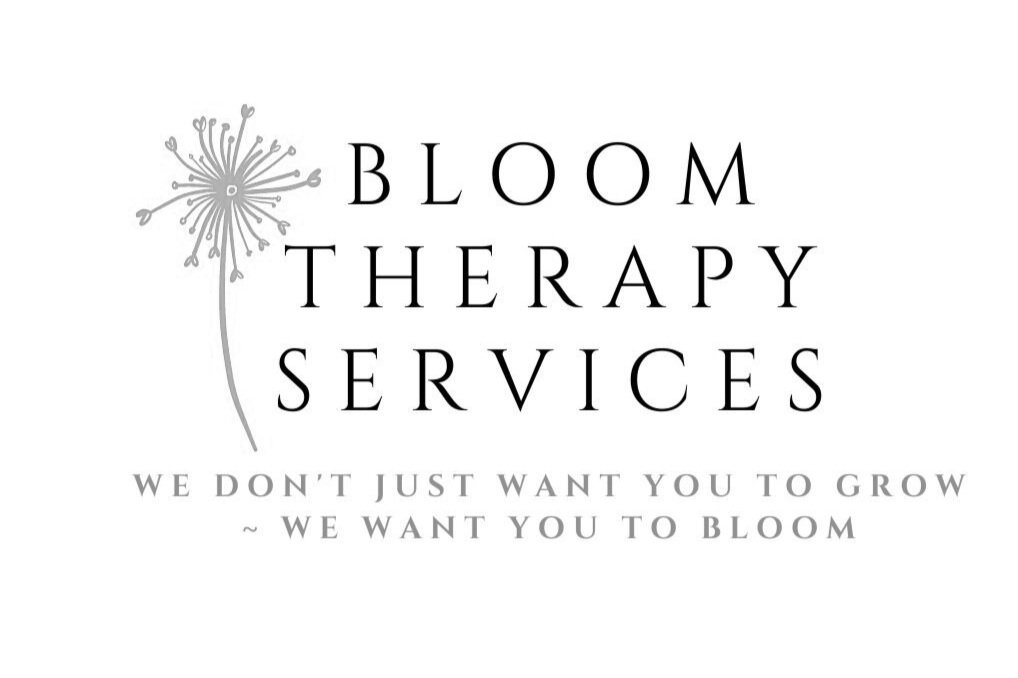




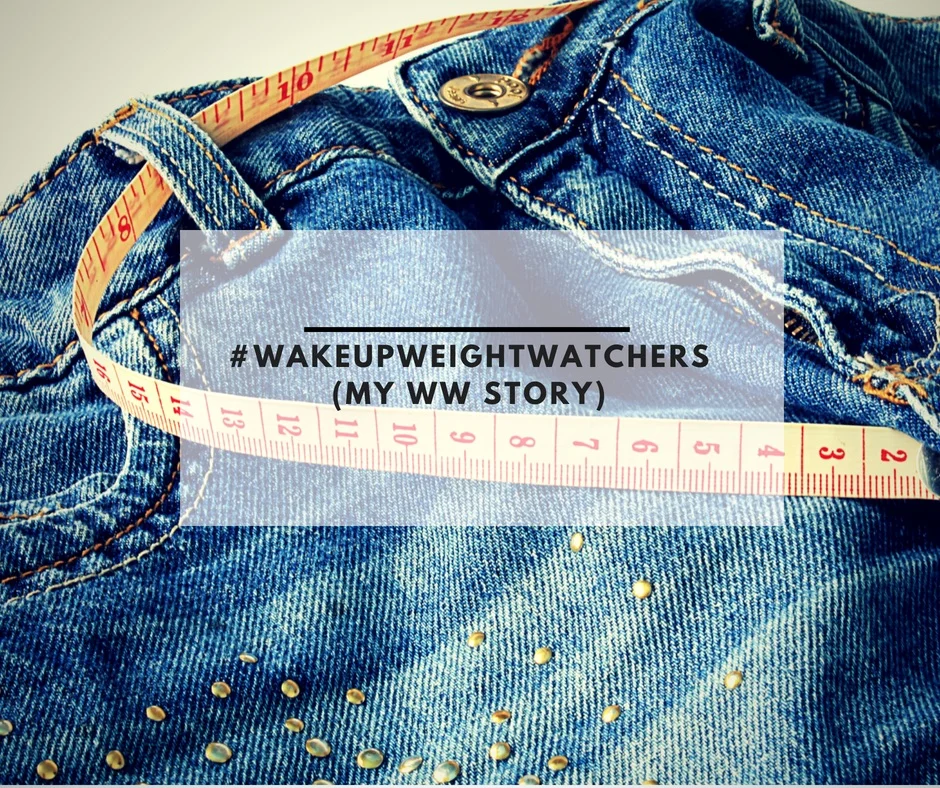




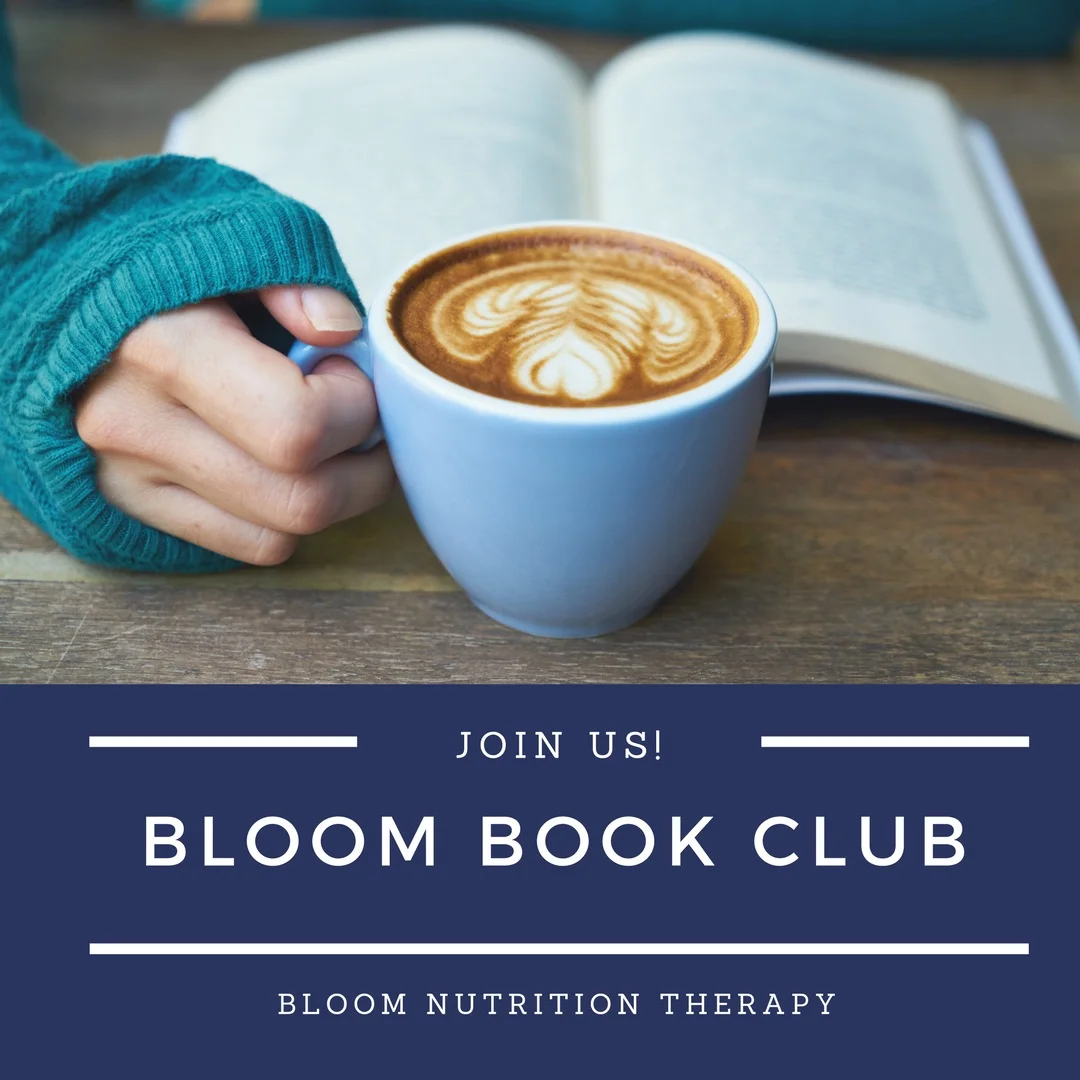







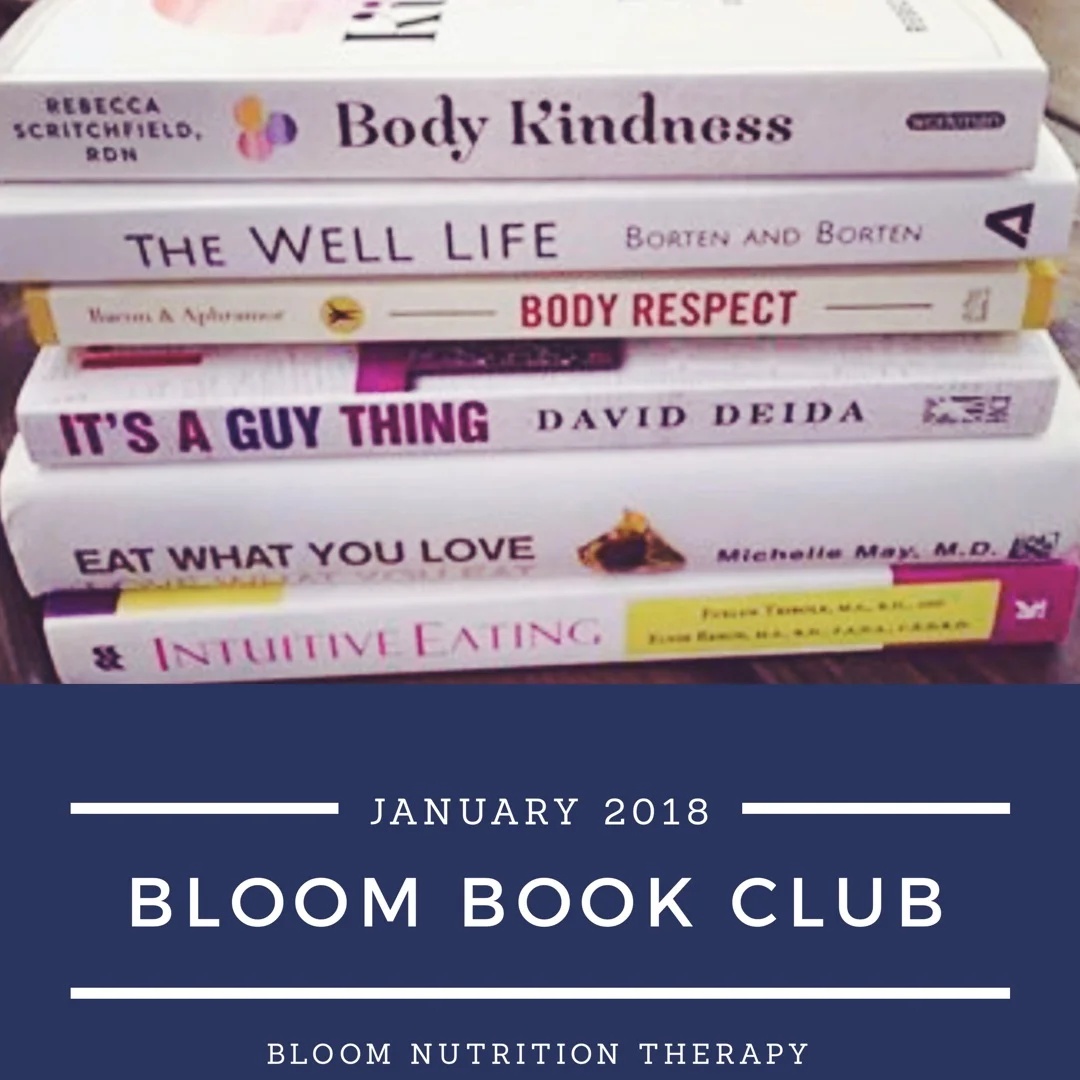

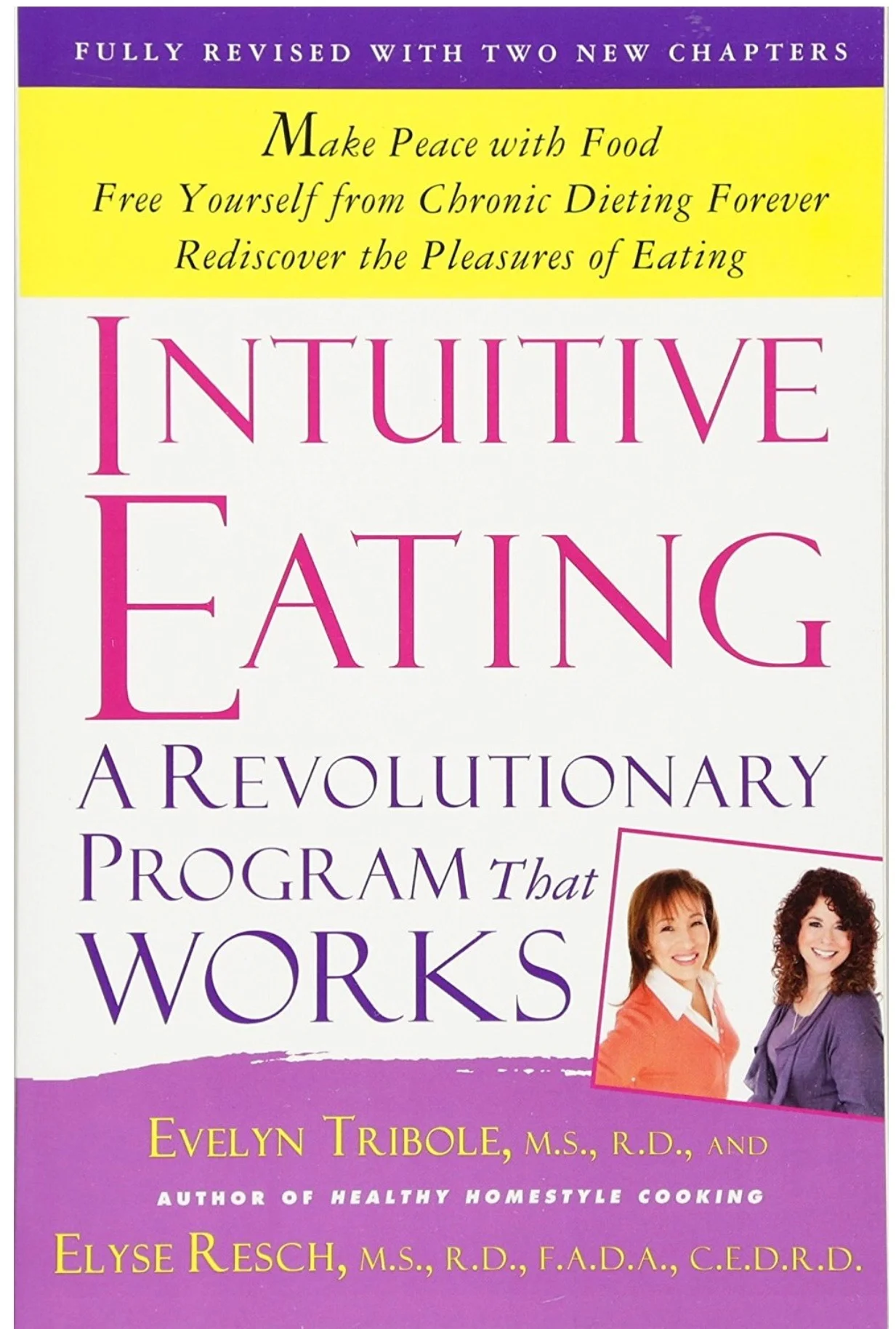




![Should You Use My Fitness Pal? [Video]](https://images.squarespace-cdn.com/content/v1/567767c5cbced60a2376a812/1508516748910-8UGMUFC4G4M2H6RC6WY6/My+Fitness+Pal.jpg)








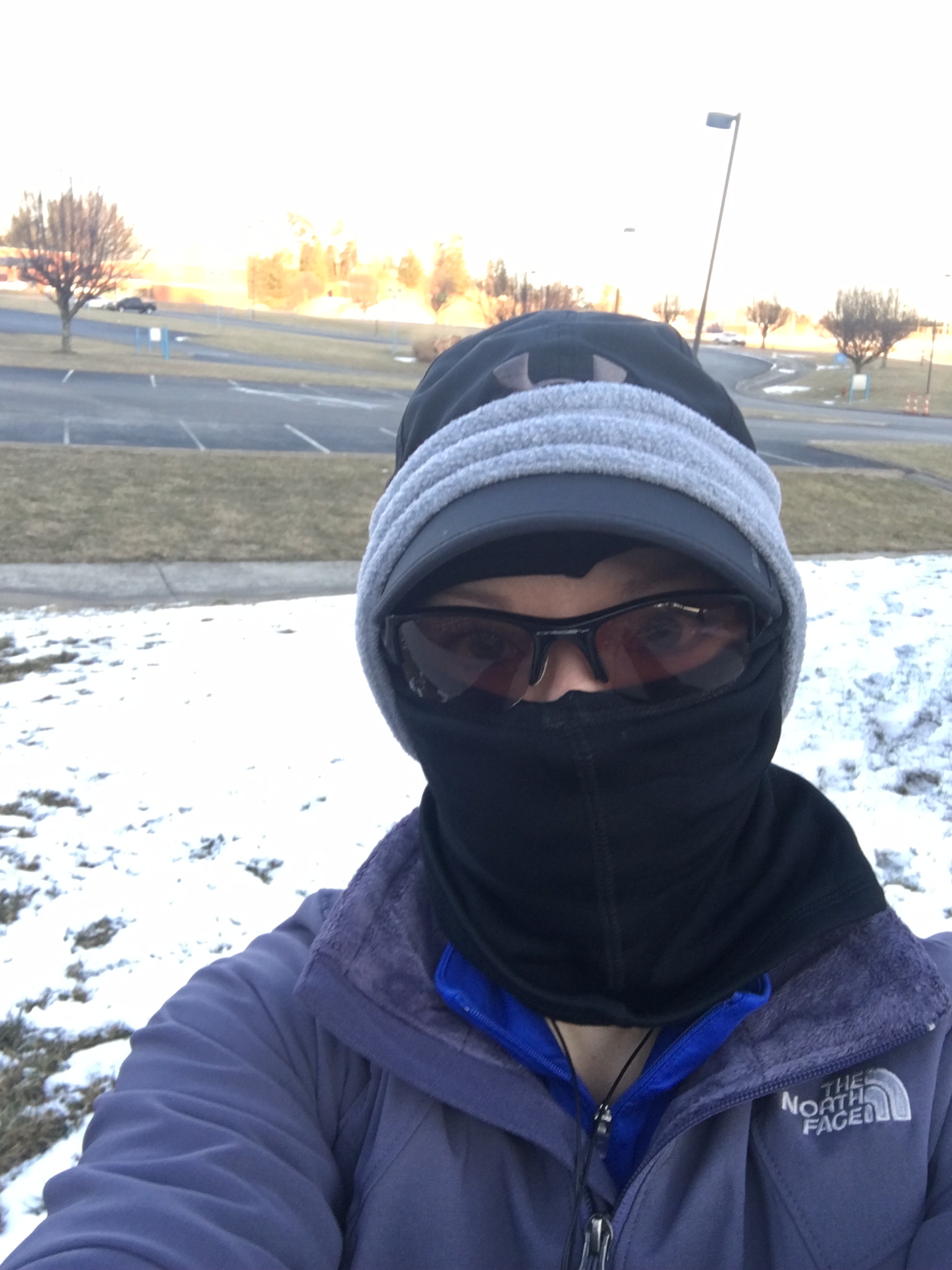

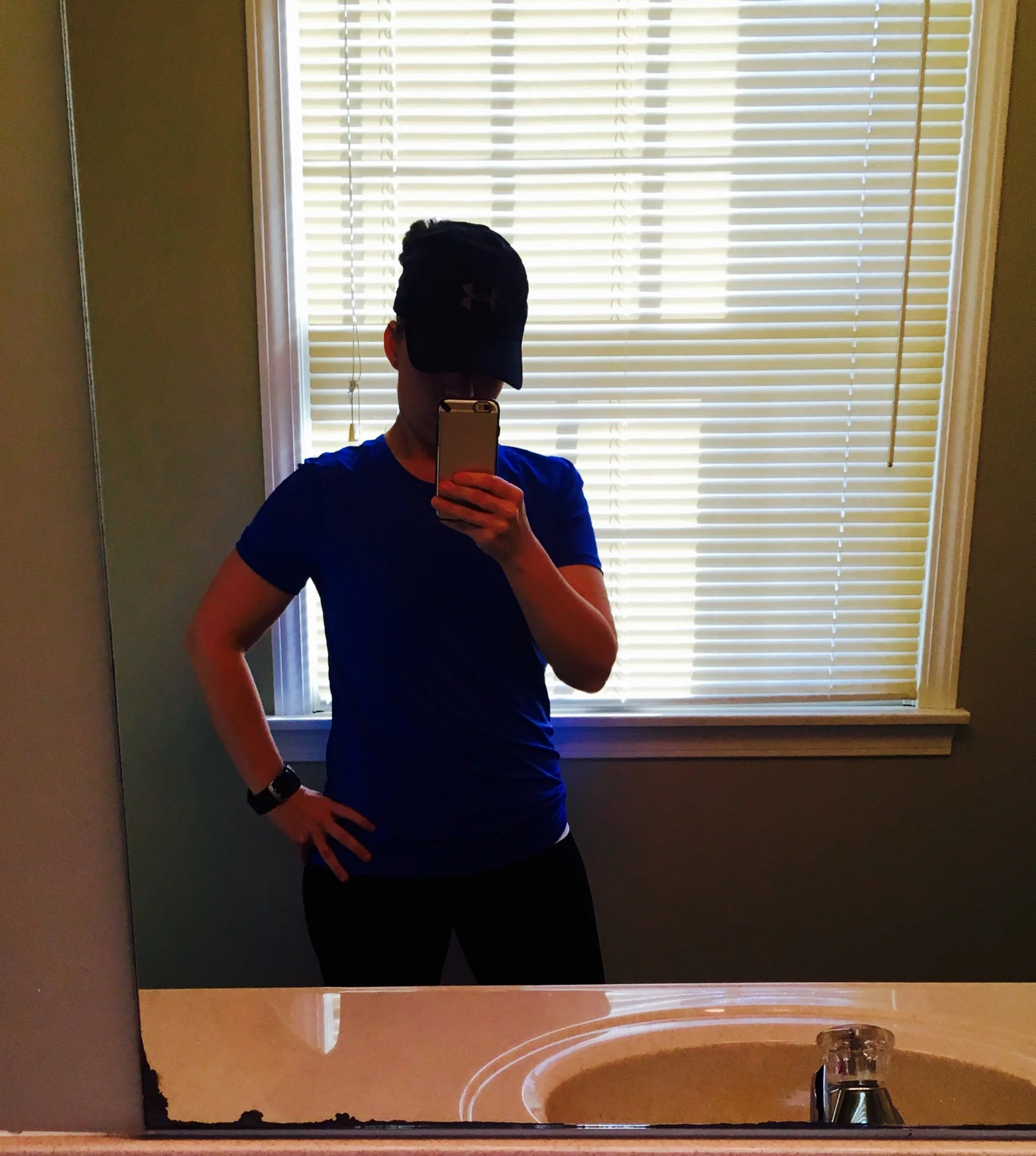





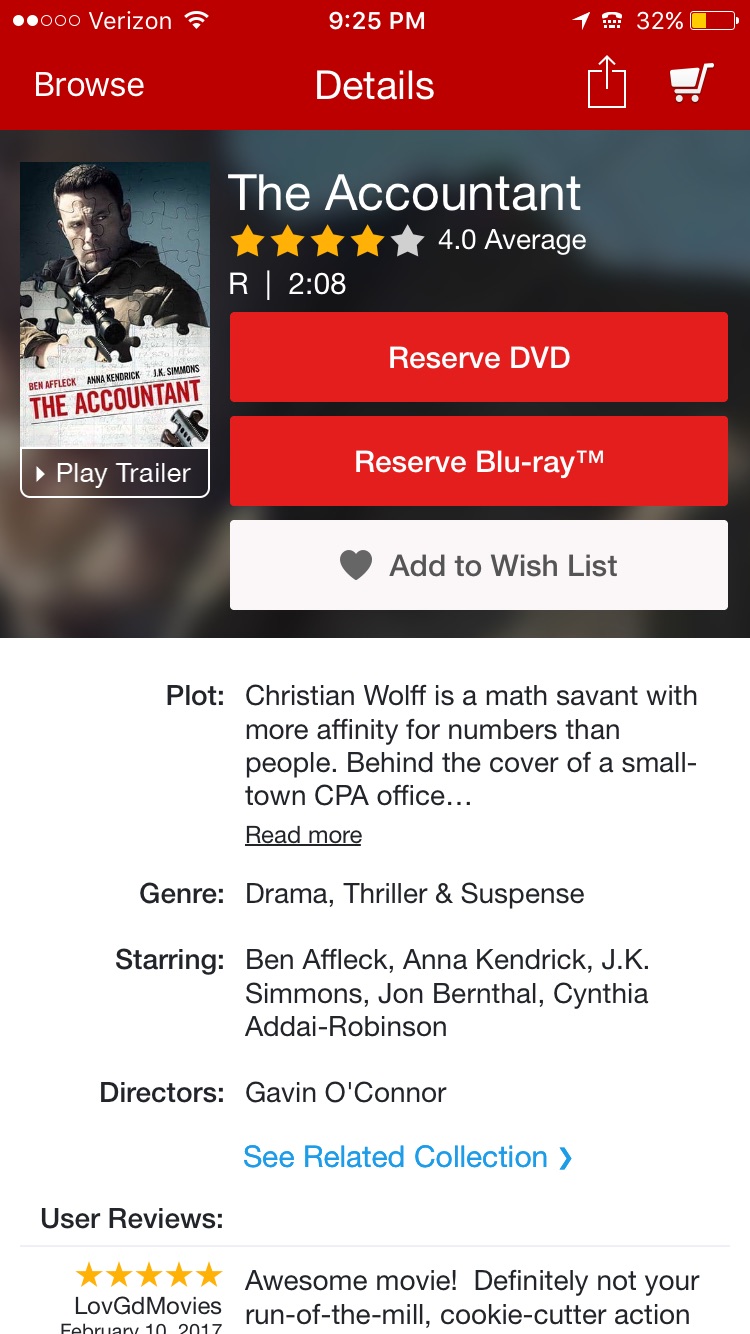
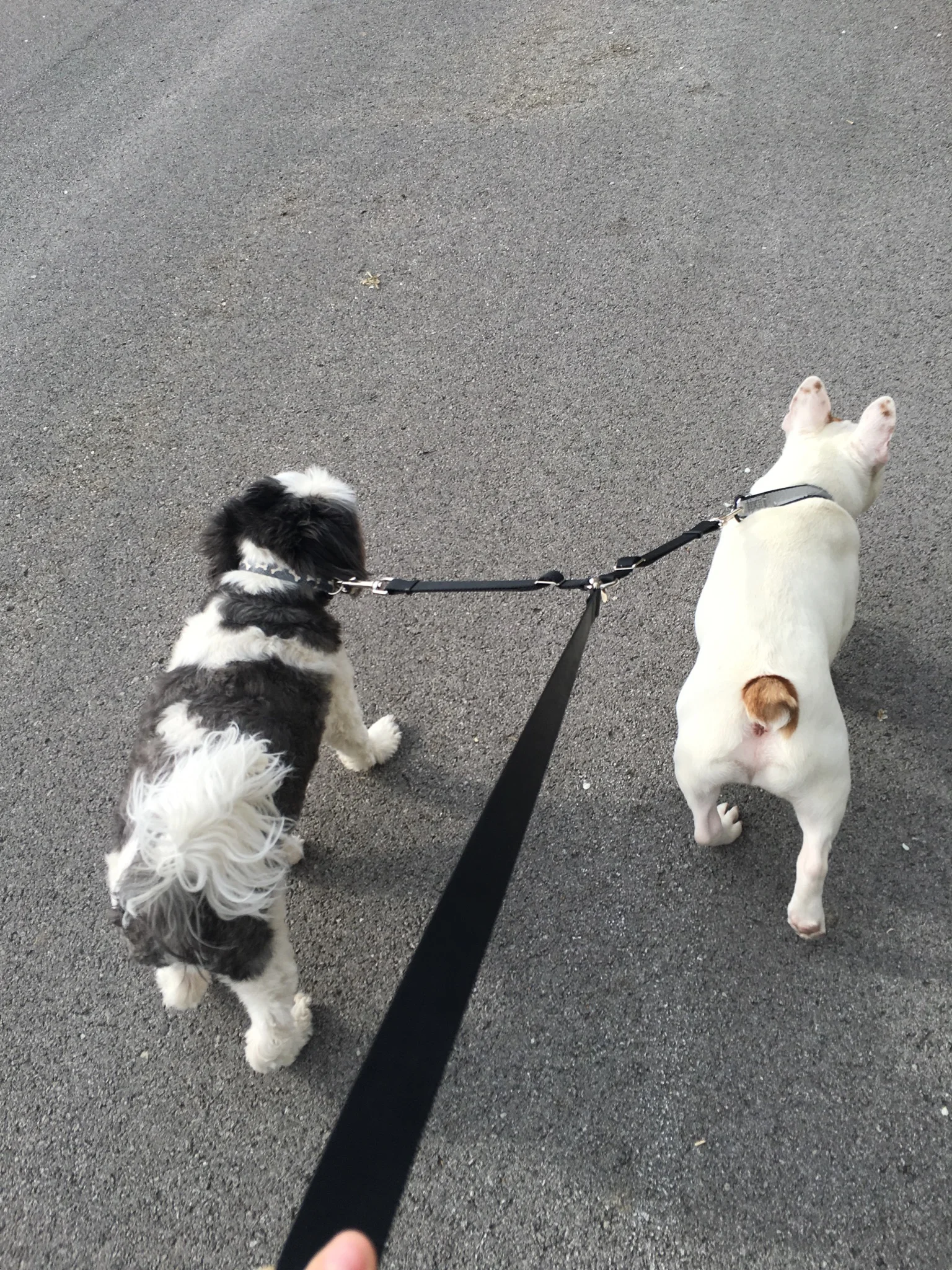




![How To Know if Your Daughter Has an Eating Disorder [Video]](https://images.squarespace-cdn.com/content/v1/567767c5cbced60a2376a812/1506273435417-UC5TRFZJJJ0BNIPJOY3F/Signs+Your+Daughter+Has+An+ED.jpg)
